10 Reasons Why You Should Be Drinking Even More Water in the Winter
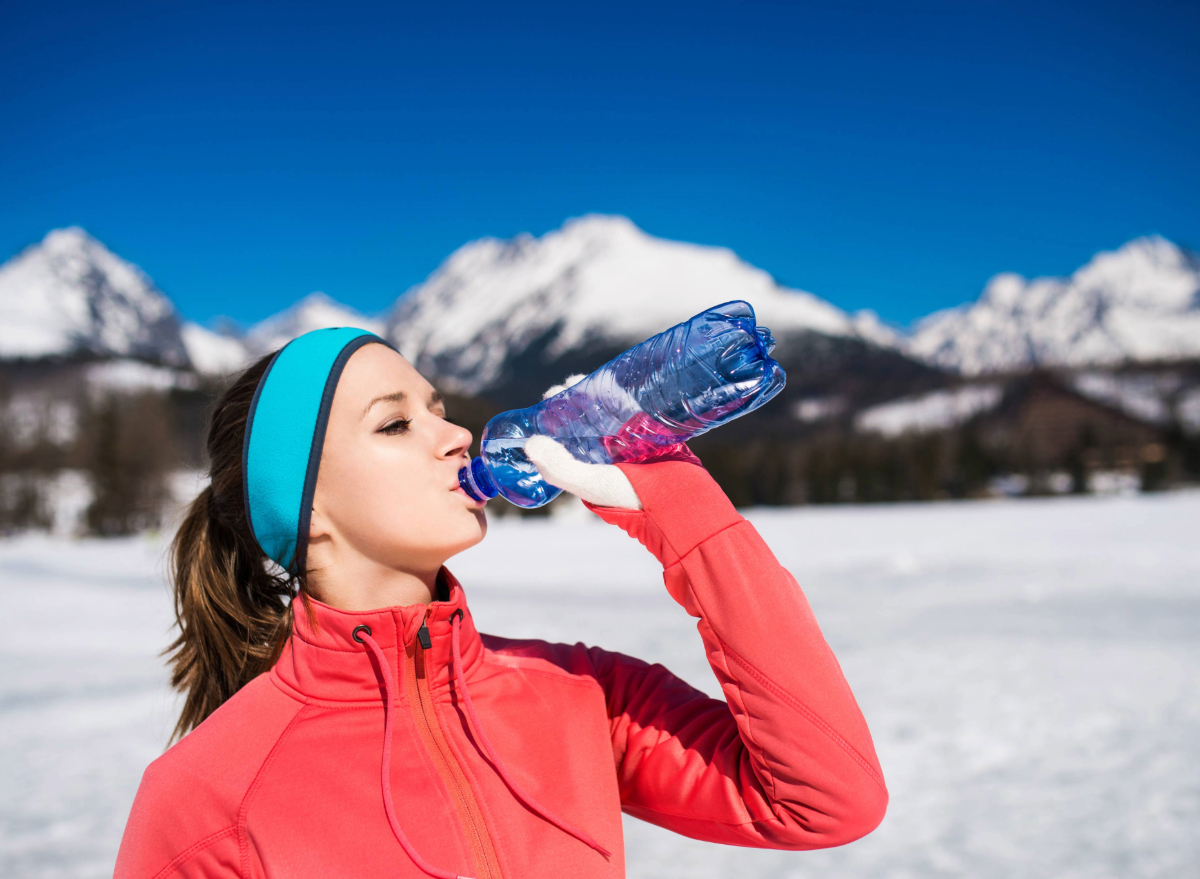
It’s no secret that with cooler winter weather often comes more time spent indoors, less physical activity, and a higher risk of catching a cold. But instead of curling up and hibernating during the chilly season, you might be surprised to learn that an effective way to stave off the winter blues is something you should already be doing daily: drinking more water. You may also be surprised to discover that the winter months can leave you feeling pretty dehydrated, thanks to indoor heating systems. Don’t fret, because we’re here to help. Eat This, Not That! spoke with an expert who shares 10 reasons you should drink more water in the winter, so get ready to fill up your glass.
We get it—reaching for a water bottle may seem like the last thing you want to do amidst hot cocoa cravings and cozy evenings by the fireplace. However, adequate hydration is more crucial than ever during the upcoming frosty months. That’s why we reached out to Caroline Young, RD, a registered dietitian and owner of Whole Self Nutrition, who shares 10 reasons why you should consume more water than usual in the winter.
Neglecting your hydration during winter may lead to a range of health issues, including compromised immune function and poor skin health. So keep reading for Young’s list of 10 reasons you should drink more water in the winter. Then, when you’re done, be sure to check out 10 Fitness ‘Rules’ You Should Abandon in 2024 For the Best Results.
Your body loses more water in the winter.

During winter, your body experiences increased moisture loss due to the dry air. This phenomenon occurs through respiration and skin evaporation, making it crucial to compensate for the loss of fluids by upping your water intake.
“Bodily water loss can increase in the winter months since it’s typically warmer and drier inside our houses than outside, increasing our fluid needs,” explains Young.
Drinking water helps balance electrolytes.
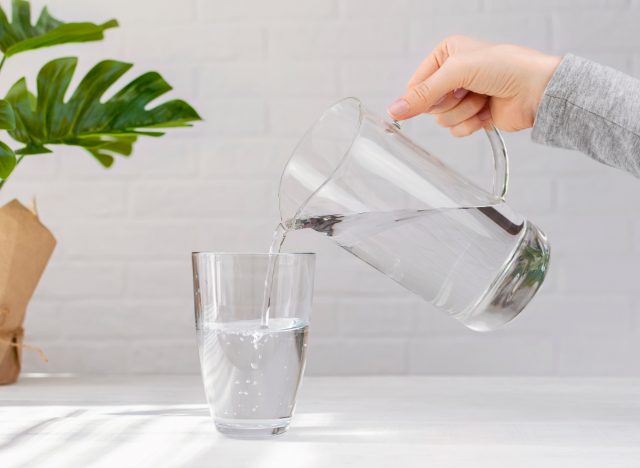
Research shows that proper hydration is essential for maintaining electrolyte balance—even during the winter. While many people think dehydration can only occur during warmer months, dehydration in the cold can also disrupt electrolyte levels. Regular water consumption can help ensure you strike a healthy balance of electrolytes for optimal nerve and muscle function.
You urinate more in colder weather.
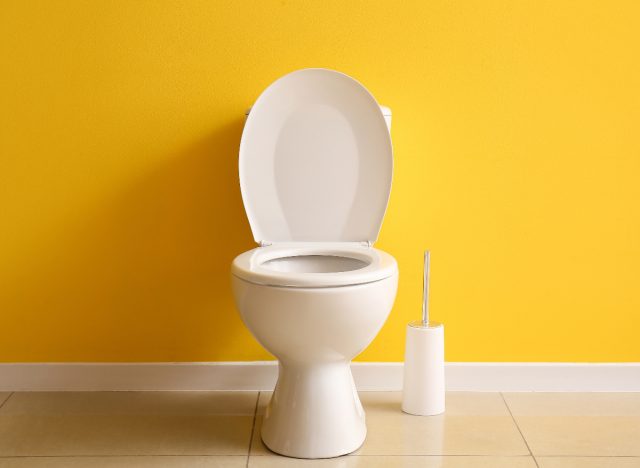
It’s not uncommon to pee more in the winter than at other times of the year. Young says, “Being in cold environments can cause kidneys to excrete more urine than it typically does, making drinking water extra important to prevent dehydration.”
Your immune system is weaker in colder environments.
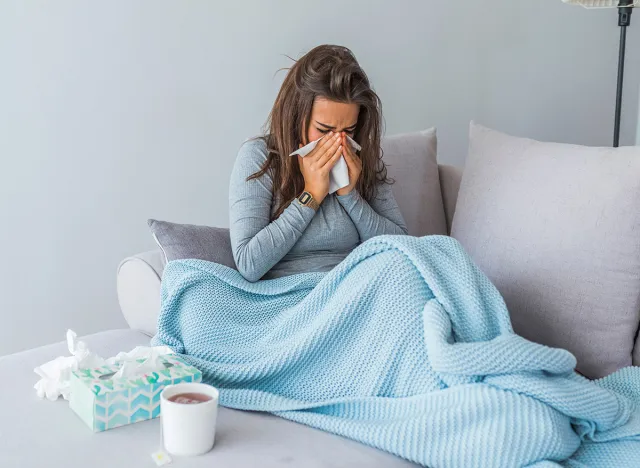
While winter often involves hitting the slopes and enjoying cozy indoor activities, it also brings cold and flu season. The good news is drinking more H2O can support optimal immune function by boosting the production and movement of immune cells.
Colder temperatures dry out your skin.
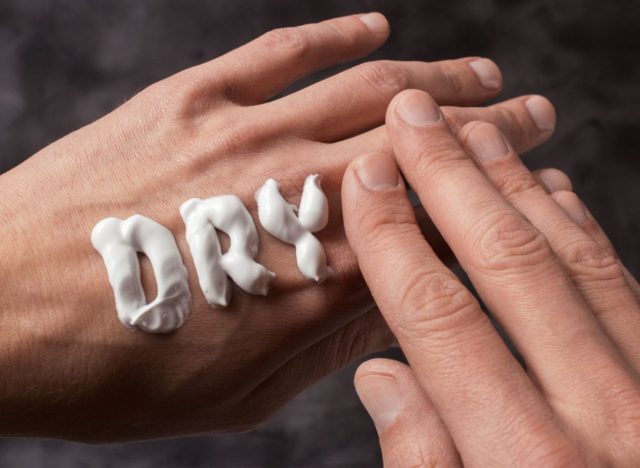
We’ve all experienced winter’s cold, dry air sucking moisture from our skin’s surface, leaving it dry and itchy. Fortunately, drinking more water can help keep your skin hydrated.
“With colder temperatures often comes drier skin,” says Young. “Drinking plenty of water can help hydrate skin from the inside and prevent dry skin, which comes with cracking, discomfort, itchiness, irritation, and more adverse side effects.”
Drinking water helps you better regulate body temperature.

“Drinking enough water in the winter can help regulate your healthy body temperature because hydration is necessary for the body’s ability to prevent hypothermia,” states Young.
Staying hydrated boosts your body’s thermoregulation (ability to self-regulate its temperature), helping you better adapt to colder temperatures. Keeping on top of your hydration can help your body naturally stay warmer during those cold winter months.
Indoor heat dehydrates you more than outdoor air.
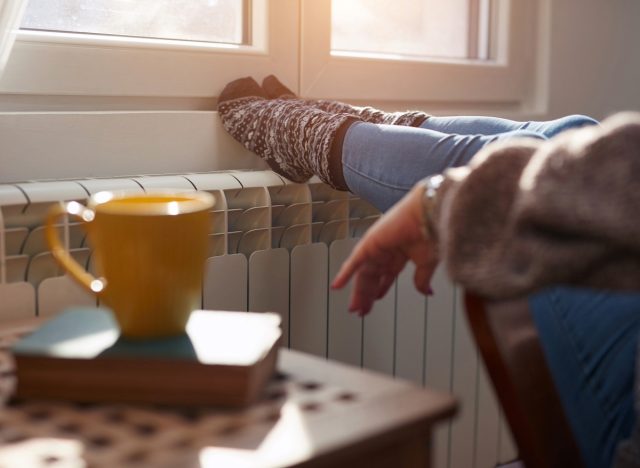
While outdoor air may be cold and dry, indoor heating systems can exacerbate dehydration further. Artificial heating causes dry indoor environments, increasing water loss through respiration and skin evaporation. Drinking more water is essential to counteract the dehydrating effects of indoor heating during winter.
Staying hydrated helps prevent winter weight gain.
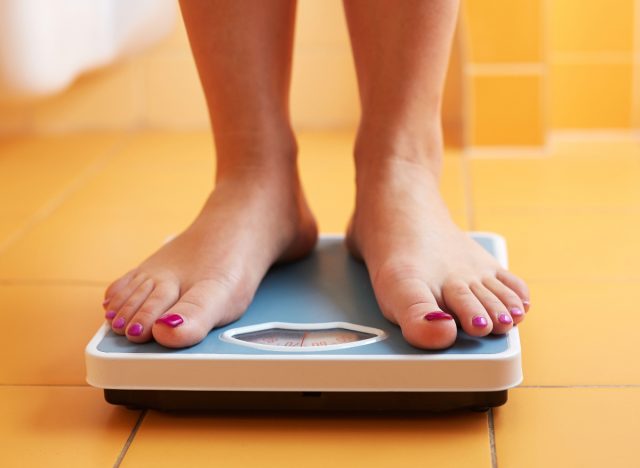
We’ve all gained a few pounds during those less active winter months. However, dehydration can often be mistaken for hunger and lead to overeating. Staying hydrated can help you regulate your appetite, reduce cravings, and improve your body’s ability to distinguish between thirst and hunger.
Your body requires more water to breathe in colder temperatures.
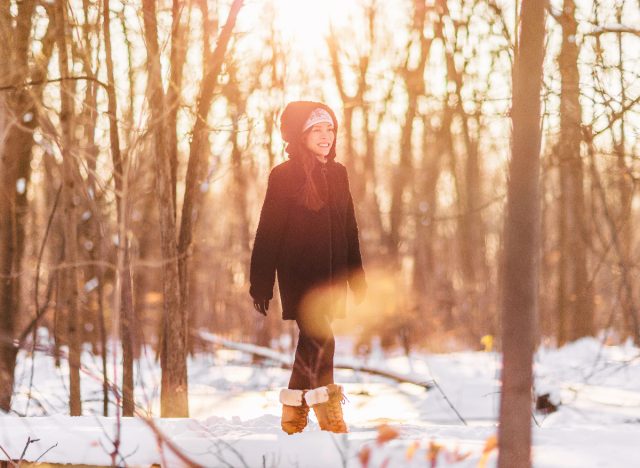
In colder temperatures, your respiratory system works harder and requires you to consume more H2O. Additionally, the dry, cold air can be harsh on your lungs, and staying hydrated supports the mucous membranes in your respiratory tract.
You don’t notice how much you sweat compared to warmer weather.
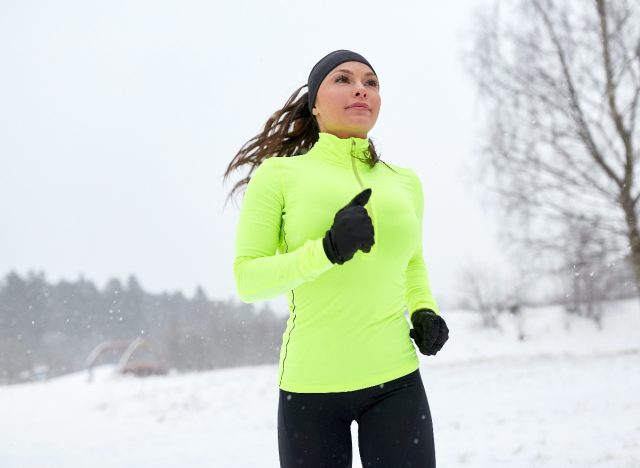
Despite the chilly temperatures, your body still sweats in the winter—albeit less noticeably than in warmer weather. So, when you’re bundled up outside, you may not notice how much you’re sweating and be unaware of the amount of fluids you’re losing.
“We need to be drinking more water than we think if we’re exercising in the cold weather because we’re likely sweating more than we realize—it’s just evaporating quicker,” Young explains. “We need to be hydrating with fluids (and electrolytes if exercising intensely or for more than an hour) the same way we would in warmer months.”
- Source: Hydration to Maximize Performance and Recovery: Knowledge, Attitudes, and Behaviors Among Collegiate Track and Field Throwers
- Source: Effect of water consumption over the immune system response given during Covid-19
- Source: Water, Hydration and Health
- Source: Relationships between human thirst, hunger, drinking, and feeding









